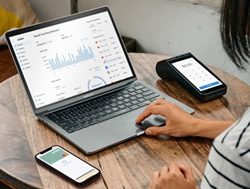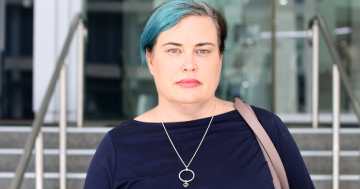*Amy Bradney-George asks the question; Do we need a credit card or not and suggests reasons in both ways.
 For many Australians, using a credit card is an everyday part of life.
For many Australians, using a credit card is an everyday part of life.
But not everyone needs a credit card.
In fact, Finder research has found that 72% of Australians could manage their money without a credit card. So they don’t technically need a card but still choose have one for different reasons, including:
For emergencies
To earn rewards or frequent flyer points (which are not offered by most other accounts)
To make big purchases
To build credit history
To pay off debt and/or get a balance transfer
Some people also like the security of knowing that a credit card uses the bank’s money, especially when it comes to fraud. It means you’re not directly out-of-pocket when suspicious transactions are investigated.
On the other hand, you don’t want to take on debt you don’t need, especially if you’re paying interest on it.
There are also some people who might be more susceptible to credit card debt. For example, people who tend to impulse shop could end up with a big balance and interest charges, which can take years to pay off.
Bottom line?
You should weigh up the pros and cons of getting a credit card based on what you would use it for and how you’d pay it off. That way, you can decide if it’s worth it for you – and see if there’s a card you want.
Did you know? 2022 Finder research shows credit card loyalty could cost the average cardholder $153 a year.
It pays to compare, and to switch when you find a better offer.
How to use a credit card (and avoid debt)
A credit card is convenient, but it also comes with a risk of debt.
Here are 4 tips to help you stay on top of payments and make the most of your credit card.
Ask for a credit limit you can manage.
Credit card companies must determine your limit based on what you could “reasonably” afford to pay off over 3 years. But if the credit limit you’re offered is higher than what you need, you can request a lower limit so you have more control.
Pay more than the minimum.
Only paying the minimum amount listed on your credit card statement can lead to years of debt and interest charges. So, aim to pay off the total balance – or as much as possible – by the statement’s due date.
Plan repayments.
Set a monthly calendar reminder for the payment due date, or set up automated payments. Finder’s credit card repayment calculator can also help you budget.
Get help if you need it.
If you’re struggling with your credit card, call your bank or provider to see what support is available. You can also get free financial advice by calling the National Debt Helpline on 1800 007 007.
Amy Bradney-George has been writing about personal finance for more than 14 years – including over 5 years as the senior writer for credit cards at Finder. She is also the editorial lead for Finder Green, covering sustainability across different industries, and Finder X.
This article was first seen on Finder.











